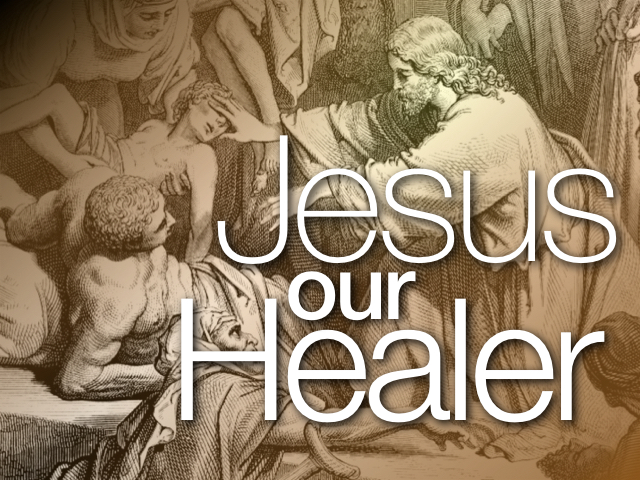
The central belief of Christianity is God’s kingdom.
I know; you thought it was Jesus, didja? Most Christians do. He’s the king of this kingdom; Christ means Messiah, which is one of the many titles of Israel’s king. But you’ll notice Jesus, when he preached the gospel, didn’t say he was the good news: The kingdom is.
- Mark 1.14-15 KWL
- 14 After John’s arrest, Jesus went into the Galilee preaching God’s gospel, 15 saying this:
- “The time has been fulfilled. God’s kingdom has come near. Repent! Believe in the gospel!”
I know; most folks who say they proclaim “the gospel,” or claim they preach “the gospel,” don’t define the gospel that way. They claim it’s the sacrificial death of Jesus: He saved us, and that’s the gospel.
It’s actually not.
Don’t get me wrong. Salvation is totally important. ’Cause without it, we’d never have access to God’s kingdom, much less inherit it. But salvation’s only the introduction to the gospel. It’s the part which explains why God bothers to interact with us sinners in the first place. Justifying us because we put our faith in him, getting forgiven and saved, being given abundant grace: That’s definitely good news. But it’s hardly the whole story, and not what Jesus preached. He proclaimed his kingdom. Lookit what all his parables and stories were about: Kingdom. Lookit what he told his followers to go out and preach: Kingdom. Mt 10.7, Lk 16.16, Ac 8.12 He wouldn’t stop talking about it!
Church is also important. But we get so focused on church functions (and busywork, and interpersonal drama), we forget the church exists to train us for kingdom living.
Jesus is absolutely important. But he’s primarily important because he rules his kingdom. Worshiping him entails doing kingdom business. Praying to him means getting kingdom instructions. Following him means developing a kingdom lifestyle. Even when he fills us with the Holy Spirit, his goal is to equip us for kingdom work.
The kingdom has been God’s goal since creation. He wanted to walk with Adam and Eve in the garden. Their sin botched that. Ever since, he’s been trying to return us to that level of relationship.
- Leviticus 26.12 KWL
- “I walk in your midst. For you, I’m God. For me, you’re my people.”
He wants to live with us forever. Permanently. Physically: You may recall God became human, but you may have got the idea this was just a temporary deal so he could die for our sins. Nuh-uh. God became human so he would be human—as limiting as we might consider this—and really live with his people. Walk with us, talk with us, hang out with us, be with us. No more distance. No more separation. Just God and his kids, a king with his princesses and princes.
Yeah, there’s heaven.
The author of Matthew preferred to describe the kingdom as “heaven’s kingdom” (KJV “kingdom of heaven”) rather than “God’s kingdom.” The popular theory is Matthew had a common Jewish hangup about name-dropping God so often. Regardless, we Christians tend to fixate on the heaven part—and assume by “kingdom,” Jesus and the scriptures are really talking about heaven. The afterlife. Paradise.
Popular Christian culture doesn’t help. There’s so much paganism mixed in with our ideas of afterlife. Most of us assume once we die, we go to heaven and stay there forever. No resurrection when Jesus returns; he just takes any Christians left on earth to heaven too. And that’s his kingdom, off in some different plane of existence. Certainly not on earth, not in the here and now… unless you mean having a heavenly attitude or mindset. And even then that’s all intellectual. Not concrete. Not real. Imaginary.
But the kingdom comes from heaven. It’s not limited to heaven. It’s not contained by heaven. It’s not trapped there. Jesus said God’s kingdom has come near. And in the Lord’s Prayer he taught us to pray it come, Mt 6.10 emerge into this world so what’s done on earth matches heaven.
Again, don’t get me wrong. We get heaven too. It’s part of the kingdom. Part. ’Cause when we take heaven and blow it up into the whole of Christianity, things get wonky. It’s like an entire body made of an eyeball. And you’ll notice how heaven-fixated Christians get wonky too: They abandon everything in this world. Yeah, they might give up materialism and greed, and that’s good… but y’notice these people also stop caring about other people. They dismiss the lost and the needy, reject caring for nature and the environment, and focus on nothing but their own heavenly future. So there’s still a lot of greed mixed in to this mindset: It’s like when someone stops washing the car ’cause it’s headed for the junkyard. It’s not really about humility.
The purpose of all the scriptures’ heaven imagery is not because we’re abandoning earth for heaven. On the contrary. Jesus intends to establish heaven here. Just as God came down, heaven’s coming down next. The reason Jesus wants God’s will done here, is because it’s earth’s destiny to become heaven. By acting like heaven’s citizens instead of earth’s, we Christians are to do our part as God establishes his kingdom. Here.
Here. But not here.
Jesus says the kingdom has come, and is already here among us. Lk 17.21
Jesus also says the kingdom hasn’t come yet. That’s why we’re praying for it in the Lord’s Prayer. It’s coming. It’s just not here yet.
Yes, that’s a paradox. One of the many paradoxes in Christianity. Which bugs a lot of Christians who insist our religion has no paradoxes; it’s totally logical and reasonable. That’s their hangup. The reality is God’s kingdom is both here, and yet to come—simultaneously. It’s here already, but not yet.
What’s this even mean? Obviously one of the ways it’s not here yet, is Jesus hasn’t yet returned in his second coming. He will, but hasn’t yet. He’s our king, but he’s not yet ruling the world from a headquarters in Jerusalem. Not yet.
But one of the ways the kingdom’s here already, is when we need resources from Jesus. If we need power, if we need to talk to our king, if we wanna borrow some of his angelic soldiers: We have full access to his kingdom. It’s right here, closer than Mexico is to the United States.
Don’t believe me? Notice what it feels like when Christians grab hold of these kingdom resources and use ’em. When people hear prophecy, get cured of their ailments, and the Holy Spirit empowers us to shout his praises in languages we don’t know: The kingdom is absolutely here. Shockingly so.
Of course, when Christians never bother to tap these resources, God’s kingdom’s gonna feel far, far away. So whether we recognize it’s here, largely depends on the active participation of believing, obedient Christians.
But that’s only the case till Jesus returns. Once he does, his kingdom will fully exist—whether Christians trust and obey, or not. (Although by then, we’ll be resurrected, and we won’t care to do anything but trust and obey Jesus.) After Jesus returns, we’ll have King Jesus on the planet to direct his kingdom personally. And powerfully.
Other kingdoms—and the fake kingdom.
Christians have wanted God’s kingdom to be here so bad, we’ve tried to bring it to earth ourselves.
The utopian view of the End Times was mighty popular among Evangelicals for centuries. It still has many adherents, all of whom think if humanity gets its act together, we might create heaven right here on earth. A kingdom of heaven, so to speak. We’ll solve humanity’s problems and everything will be paradise. What a beautiful world this will be; what a glorious time to be free.
So these utopians make an effort to establish a Christian nation. Or bring us back to our Christian roots (assuming we truly had any). We pass “Christian laws” by adapting biblical commands for our nation’s statutes. (Definitely the moral ones; sometimes even the judicial ones.) We throw in a few extra laws which encourage public piety: Put prayer in the public schools, force businesses to close on Sundays and Christian holidays, require the state to hold to “Christian” definitions of marriage and family and morality. They figure the reason God won’t answer the prayer, “Your kingdom come,” is ’cause that’s our job.
Invariably this goes wrong.
Because Jesus isn’t directly in charge. Humans are. Sinful humans are. Y’see, sinful humans covet power. And we’ll pretend to be whatever we have to be in order to get it. Invariably hypocrites take control of our so-called “Christian nation.” So, expect it to look far less like Christ, and far more like the Beast. Run by legalism instead of grace, fear instead of love, greed instead of compassion, debt instead of generosity. Funding prisons instead of hospitals and schools, pushing the death penalty instead of rehabilitation, manufacturing the world’s most massive warmaking machinery instead of peace. You know, like the United States right now.
Without Jesus’s personal, direct involvement, humans are just corrupt enough to bollix the entire thing. Look at the very best examples we have in the bible: Moses, David, and Josiah. And we all know what sins they committed.
There are very good reasons for the separation of church and state. Put ’em together and you won’t produce the kingdom. You get a state run by fake Christians, and a church full of hypocrites. We’ve seen it happen time and again throughout European history. But either we don’t know history, or we’re naïve enough to think we understand Jesus better than those old dead white guys ever did, so we’ll get it right.
Not that there’s anything wrong with it when Christians vote, run for office, and work in government. Moral people should be involved in government. We need to steer it away from evil as best we can! But when we try to grow God’s kingdom through political might, instead of surrendering all power to the only one able to handle it without it utterly corrupting him (obviously I mean Jesus; duh) we adopt force instead of grace. We using the devil’s methods instead of Jesus’s. We need to keep the state out of the Christianity business. Jesus is the only one qualified to run his kingdom. Till he returns, we have no business creating another monster which Jesus’ll just have to overthrow anyway. Don’t delude yourself into thinking the United States is an exception. That’s treason against our true king.
So in the meanwhile we Christians have dual citizenship, so to speak: We’re part of the royal family of God’s kingdom, and at the same time we live in the “kingdom” of our homelands, and have duties as its citizens. Vote, pay taxes, do community service. But when these kingdoms come into conflict, God’s kingdom must always take priority, period. We don’t put the American flag above the Christian flag on our flagpoles. We don’t support immoral leaders right or wrong, simply because we share a political party. (Well, okay, some brain-dead Christians do. But point out the discrepancy to them, and they’ll sort it out… or expose their real priorities. Either way.) We serve the eternal kingdom, not the one Jesus is gonna replace with his reign.
Kingdom living.
“The Christian life” is simply a synonym for kingdom living. We’re gonna live in God’s kingdom forever, and we need to start behaving like it. We need to adopt that lifestyle and get used to it.
That’s where we kinda slide away from kingdom talk, and get into thinking like God does (theology), behaving like God wants us to (sanctification), accessing God’s power (supernatural), and looking forward to Jesus’s return (End Times). But all of it, all of it, involves the kingdom. Like I said, it’s the central belief of Christianity.
Didn’t realize this? Well, let it sink in.








